2023 Baseball HOF preview: Downballot candidates try to hold on
With the Baseball Hall of Fame's class of 2023 announcement approaching, it's time to review this year's ballot. Today, we look at five returnees and one first-timer clinging to their spots at the bottom of the ballot. While they aren't going in this year, their intriguing cases are at least worthy of further examination.
Note: All WAR figures from Baseball Reference unless otherwise noted.
Bobby Abreu
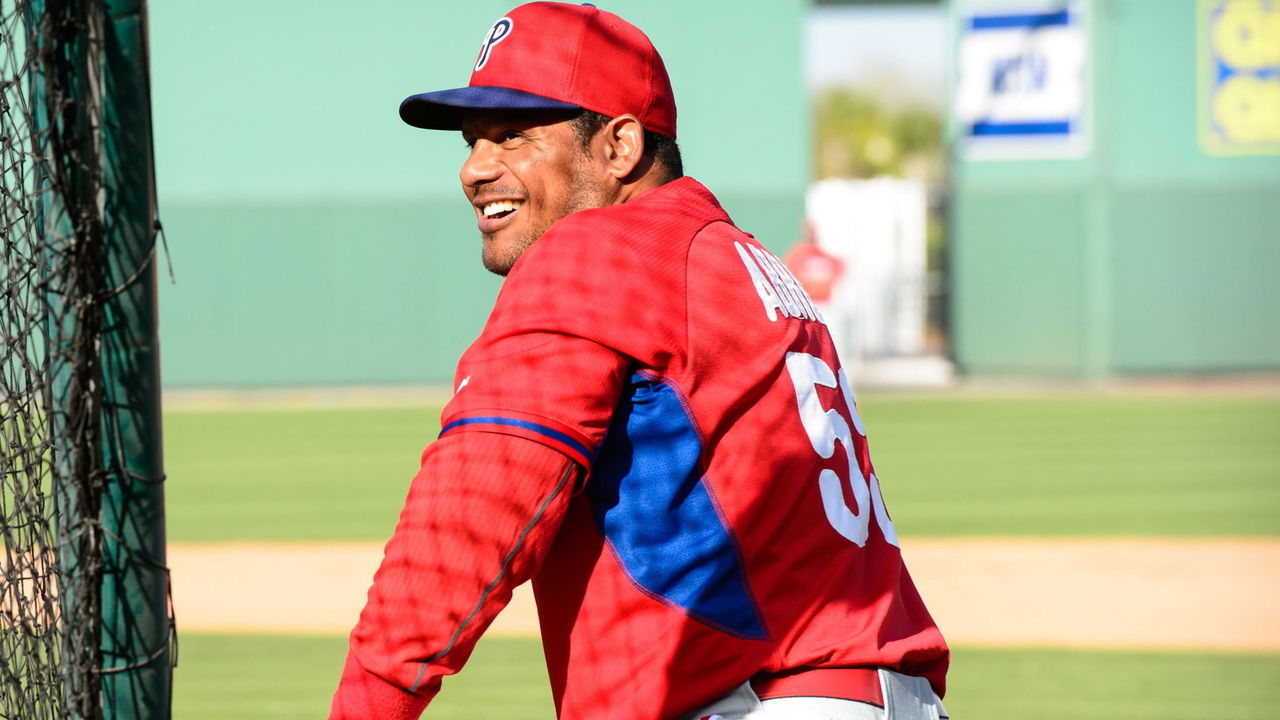
Position: RF
Teams: Astros, Phillies, Yankees, Angels, Dodgers, Mets
JAWS: 50.9 (21st at RF)
WAR: 60.2 (19th)
Year on ballot: 4th (8.6% in 2022)
| GP | BA | OPS | H | HR | RBI | SB |
|---|---|---|---|---|---|---|
| 2425 | .291 | .870 | 2470 | 288 | 1363 | 400 |
Abreu doesn't have many of the counting numbers normally associated with the Hall of Fame. He wasn't the flashiest player, and he spent most of his prime with some mediocre Phillies teams. But he was a quietly consistent and durable five-tool talent with an incredible knack for getting on base. Abreu's resume includes a pair of 30-30 seasons (one of them 30-40), eight straight seasons with 100-plus walks, and 574 doubles that sit tied for 25th all time. He also ranked top 10 in on-base percentage eight times.
On the metrics side, Abreu had a higher seven-year peak WAR (41.6) than Hall of Fame right fielders Tony Gwynn and Vladimir Guerrero, and his career bWAR ranks 19th at his position. By the JAWS metric, he compares favorably to Guerrero and Dave Winfield, among others, though he's still well below the average Hall of Fame right fielder and even trails some fellow outsiders.
That Abreu has kept his spot for four years now is obviously good news, especially with the backlog finally clearing up. His public vote number has increased annually, a pattern that's continuing in 2023 with 11 gained votes. But that's still barely a quarter of the overall vote, and the difference in support on public and private ballots is stark. Barring the unforeseen, Abreu's now out of the 5% danger zone, which is a small victory, but he needs to crack the 10% mark on election day if he's going to make a Larry Walker-esque climb. That's not an unreasonable ask, but we also said the same thing last year. The clock is ticking.
Mark Buehrle
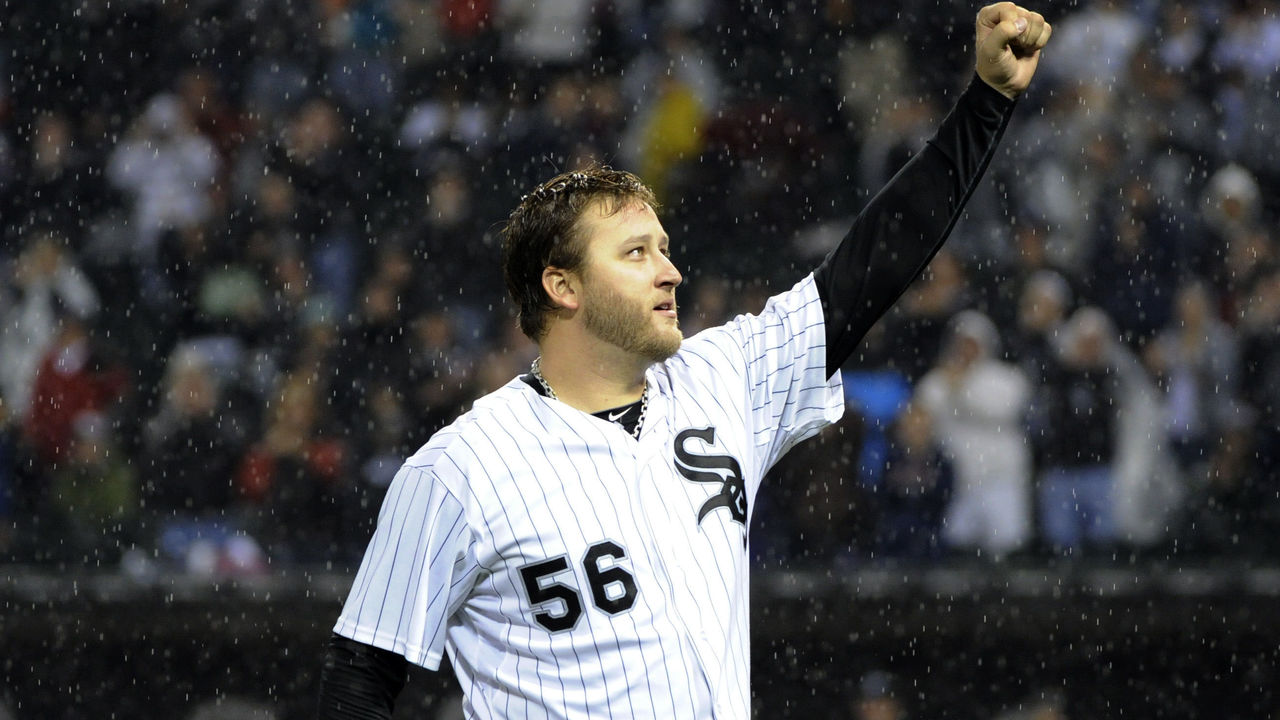
Position: SP
Teams: White Sox, Marlins, Blue Jays
JAWS: 47.4 (90th at SP)
WAR: 59.1 (69th)
Year on ballot: 3rd (5.8% in 2022)
| IP | W-L | ERA | WHIP | K |
|---|---|---|---|---|
| 3283.1 | 214-160 | 3.81 | 1.28 | 1870 |
He worked quickly, threw slop, and ate up innings like nobody else in his time. Buehrle was the antithesis of 21st-century starting pitching and continues to present a fascinating conundrum as he once again clings to his spot.
A 38th-round pick of the White Sox in 1998, Buehrle defied the odds to throw more innings than all but one pitcher (CC Sabathia) since 2000, and crossed the 200-inning mark in 14 consecutive campaigns. His resume includes five All-Star appearances, four Gold Gloves, and a pair of no-hitters, one of which was perfect. Buehrle's 12 years with the White Sox and heroic performances during their 2005 World Series run made him a hero on the South Side of Chicago, where his No. 56 is retired.
Buehrle's overall numbers, both traditional and advanced, don't scream Hall of Fame, though he gets extra points for being a dinosaur of sorts when his kind was (and still is) going extinct. That's still probably not enough - but should it be? As starting pitchers continue to evolve and decrease their workloads, Buehrle's unique (for his era, at least) career could start to age like fine wine, and look more worthy against his peers in the coming decades.
Buehrle's ballot journey has somewhat mirrored his career in that he's survived far longer than most expected. He's even gained eight public votes to date. But he's not safe yet, and finding a couple more checkmarks to secure a fourth year may finally prove too difficult. If nothing else, his continued presence here is a reminder that his career was both unique and special. Hall of Famer or not, you'll remember Mark Buehrle.
Torii Hunter
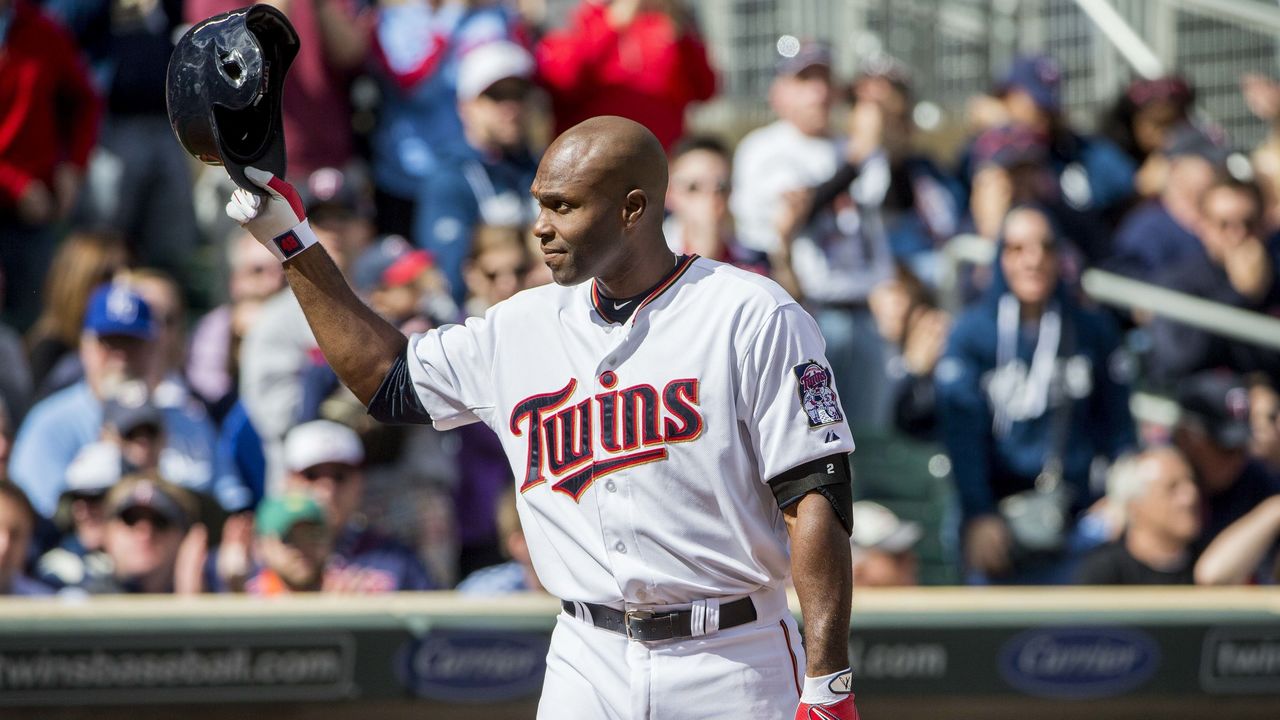
Position: CF
Teams: Twins, Angels, Tigers
JAWS: 40.7 (36th at CF)
WAR: 50.7 (26th)
Year on ballot: 3rd (5.3% in 2022)
| GP | BA | OPS | H | HR | RBI | SB |
|---|---|---|---|---|---|---|
| 2372 | .277 | .793 | 2452 | 353 | 1391 | 195 |
Defense was Hunter's calling card, and there should always be room for defense in the Hall of Fame. But he's not even close to the best defensive center fielder on this ballot.
Hunter won nine Gold Gloves in center field with the Twins and Angels; only five outfielders have won more. The five-time All-Star contributed to playoff clubs in Minnesota, Los Angeles, and Detroit, and - despite his glove-first reputation - won a pair of Silver Sluggers later in his career. He also surpassed the 2,000-hit mark, which will surely appeal to some voters. But for all of the brilliant catches he made - most memorably in the 2002 All-Star Game - his reputation might be bigger than his performance. He ranks 83rd among center fielders in fielding runs, a combination of the total zone and defensive runs saved metrics.
Hunter barely scraped by the 5% mark last year thanks to a few extra private votes in the final tally, though his total support dropped from 9.5% in 2021 to just 5.3%. That decline all but sealed his fate this time around, and with his numbers now cratering - just three votes thus far - it will be a true miracle if he survives again.
Jeff Kent
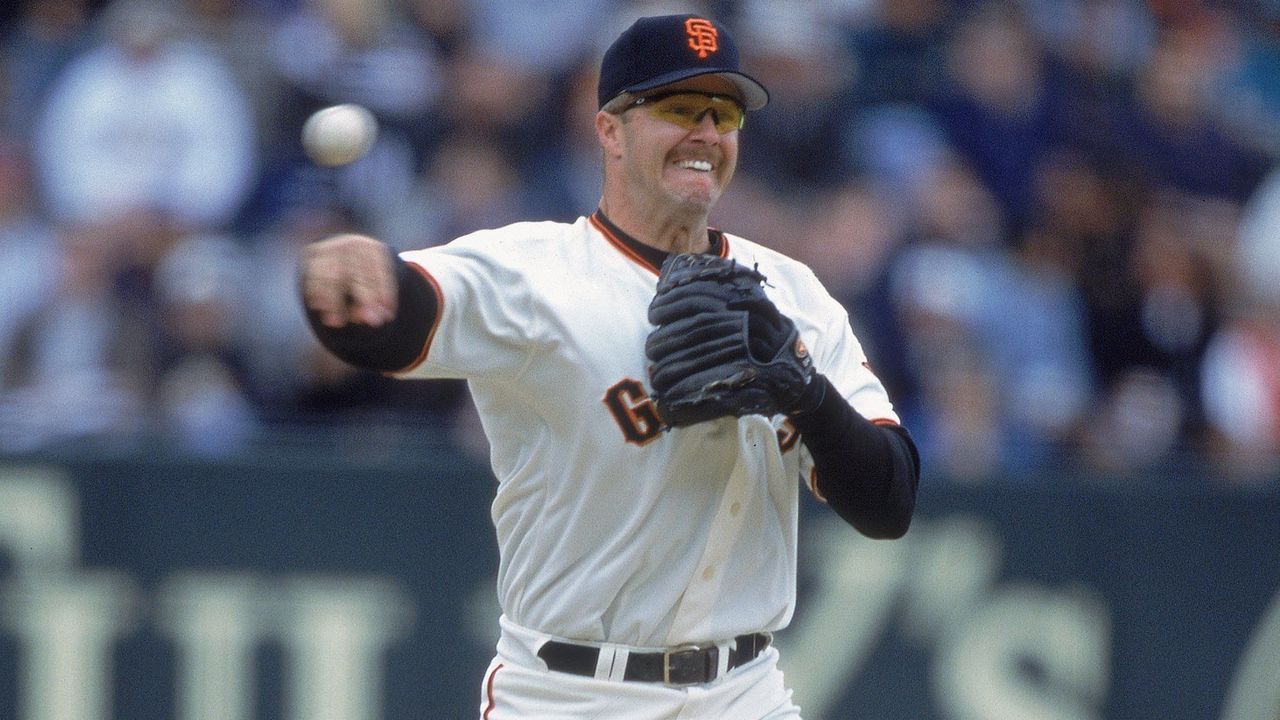
Position: 2B
Teams: Blue Jays, Mets, Indians, Giants, Astros, Dodgers
JAWS: 45.6 (21st at 2B)
WAR: 55.4 (19th)
Year on ballot: 10th (32.7% in 2022)
| GP | BA | OPS | H | HR | RBI |
|---|---|---|---|---|---|
| 2298 | .290 | .855 | 2461 | 377 | 1518 |
Perhaps more than any other hitter of his generation, Kent represents the schism between the old and new voting bloc. Entering his final year in front of the writers, he remains in a limbo that's mercifully about to end.
Kent was one of the best offensive second basemen of all time and arguably the position's best power hitter. His 377 home runs are tops among second basemen, and he has more hits than several Hall of Famers at the position. A six-time All-Star, Kent was the 2000 National League MVP and owns four Silver Sluggers. His 123 OPS+ ranks ninth among second basemen with at least 7,000 plate appearances and fourth in the expansion era (since 1961).
Where he loses points is defense, especially at a position where glove work is paramount. Kent was, simply put, not a good defender, and it had a significant effect on his WAR (both versions), seven-year peak WAR, and JAWS scores. His minus-0.1 dWAR (Baseball Reference) is miles below the nearest Hall of Fame second baseman.
Supporters contend that Kent's offensive brilliance outweighs his porous defense, noting he was never linked to performance-enhancing drugs at the height of the steroid era. Others don't back him for a variety of reasons, including his notoriously prickly personality, making it easy to see why he's aging off the ballot without having made any significant progress. The traditional final-year bump and extra love from private, old-school voters might finally push him above 50%, but it won't be nearly enough. Fortunately for Kent, he's got the kind of case that the smaller committees historically love. Don't be surprised if he's a favorite for election on the next Contemporary Era players' ballot in 2026.
Jimmy Rollins
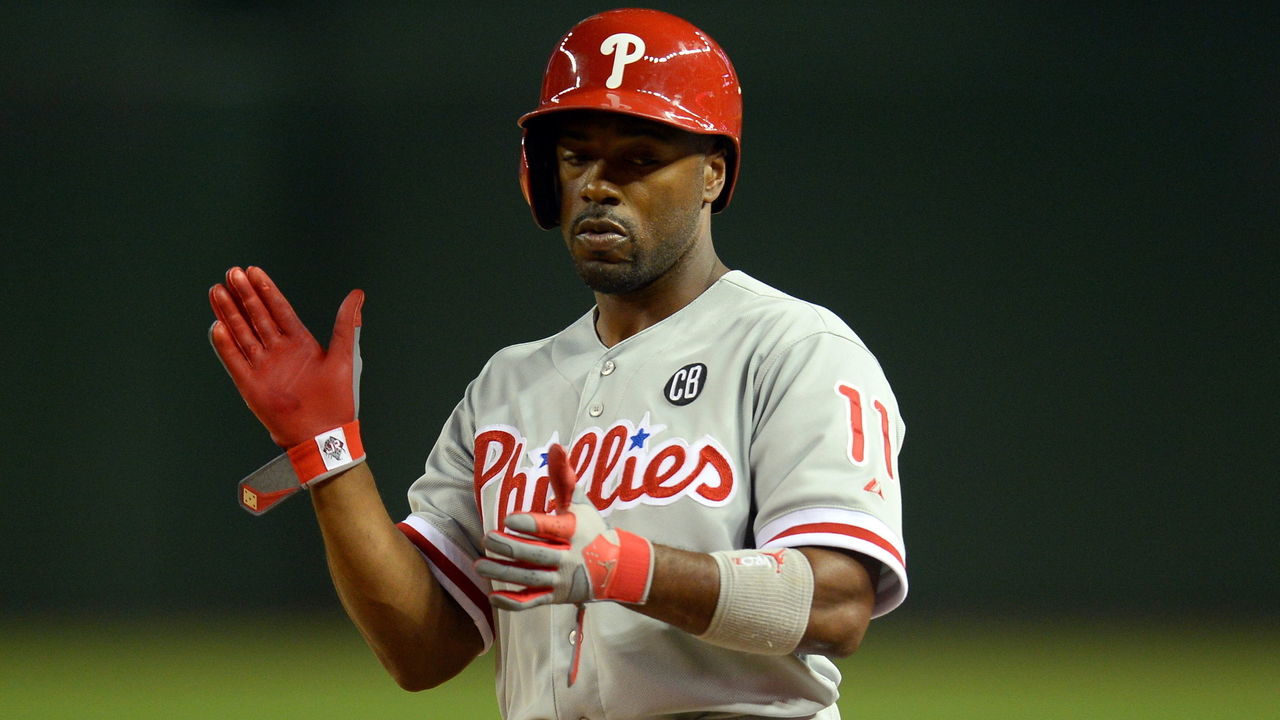
Position: SS
Teams: Phillies, Dodgers, White Sox
JAWS: 40.1 (32nd at SS)
WAR: 47.6 (26th)
Year on ballot: 2nd (9.4% in 2022)
| GP | BA | OPS | H | HR | RBI | SB |
|---|---|---|---|---|---|---|
| 2275 | .264 | .743 | 2455 | 231 | 936 | 470 |
Rollins was one of the leaders of the Phillies' NL East dynasty in the early 2000s. His best year came in 2007 when he led Philadelphia to a division title by producing just the fourth (and most recent) 20-homer, 20-steal, 20-double, and 20-triple season in history - with 212 hits for good measure. Rollins won two pennants and a World Series, six division titles, and four Gold Gloves. Alongside Derek Jeter and Cal Ripken Jr., he's one of only three shortstops with at least 200 homers and 2,400 hits. He's also the Phillies' all-time hits leader. And while his 95 OPS+ is low, it's still higher than some Hall of Fame shortstops, including Ozzie Smith and Luis Aparicio.
Of course, Smith and Aparicio made up for their lower offensive outputs with unmatched defensive brilliance, and though Rollins has the hardware, he wasn't close to their level. He ranks eighth in defensive runs saved (tracked since 2003) but lags well behind the pack in Baseball Reference's fielding runs, which encompasses all eras. By JAWS and WAR, he's also near the bottom of the pack compared to Hall of Fame shortstops. He was a very good hitter who won awards and has a ring, but 2007 aside he was never truly great.
Rollins clearly intrigues voters, though, having gained a few more checkmarks on public ballots so far this cycle. As far as avoiding the 5% mark goes, he's still on the bubble, but if last year was any indication, he might be able to find those extra votes on private ballots once again. Even if that happens, though, he'll still only be scraping by on election day.
Francisco Rodriguez
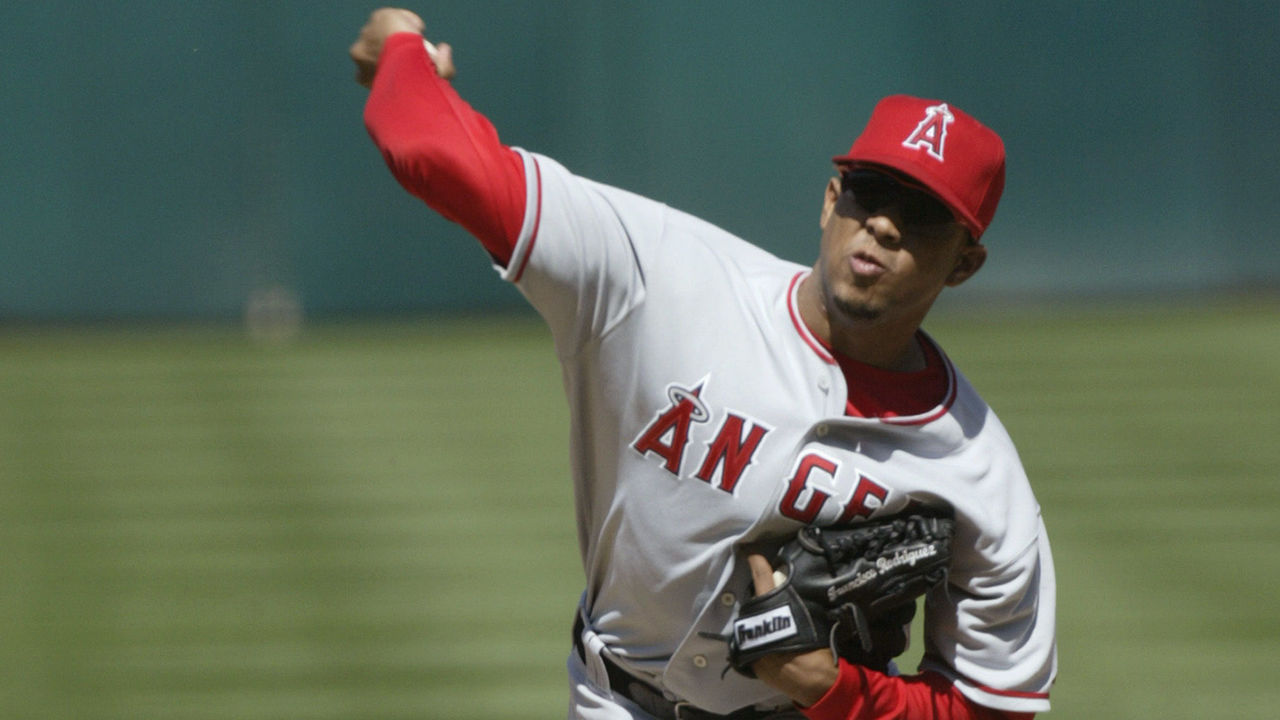
Position: RP
Teams: Angels, Mets, Brewers, Orioles, Tigers
JAWS: 20.9 (34th at RP)
R-JAWS: 21.1 (12th)
WAR: 24.2 (25th)
Year on ballot: 1st
| IP | W-L | ERA | WHIP | K | SV |
|---|---|---|---|---|---|
| 976.0 | 52-53 | 2.86 | 1.15 | 1142 | 437 |
Rodriguez is the only first-time candidate besides Carlos Beltran who can boast even a marginal Hall of Fame case. Relievers are always more difficult to judge and are often ignored, but Rodriguez's resume absolutely warrants closer examination.
"K-Rod" burst onto the scene as a 20-year-old playoff hero for the 2002 Angels. After striking out 13 batters in just 5 2/3 regular-season innings as a September call-up, Rodriguez electrified during the Halos' World Series run, authoring a 13-inning scoreless streak while striking out 28 as their eighth-inning weapon. He continued to dominate after ascending to the closer's role, leading his league in saves three times - and setting a single-season record with 62 in 2008. A six-time All-Star, he finished fourth or higher in Cy Young voting three times, tallied six 40-plus save seasons, and owns the most saves among pitchers not in the Hall.
Rodriguez's impressive position on the saves leaderboard stands out, but saves alone don't make a Hall of Fame reliever, especially one who retired before turning 36. The early finish prevented him from reaching the 1,000-inning mark, and an inconsistent back half of his career also hurts his case. Rodriguez's 16 seasons are clearly divided into "Angels" and "post-Angels" sections, with his dominance waning after leaving Anaheim in 2009:
| Team | ERA+ | FIP | K% | OPP AVG | WAR |
|---|---|---|---|---|---|
| Angels | 189 | 2.84 | 31.9% | .189 | 16.0 |
| Post-Angels | 122 | 3.71 | 25.5% | .222 | 8.2 |
Hindered by that post-Angels run, Rodriguez lags behind the pack in most advanced stats. R-JAWS, Jay Jaffe's adjusted metric designed to offset starting pitching numbers and better evaluate relievers, is where he fares best, jumping from 34th to 12th - ahead of three Hall of Famers, but still well back of the average enshrined reliever.
The rise of Billy Wagner's candidacy both helps and hurts Rodriguez. Should Wagner eventually earn induction with fewer than 1,000 innings, voters might circle back to Rodriguez if he's still around. But Wagner easily beats K-Rod in most statistical categories besides saves and playoff performance. Even in R-JAWS, Wagner sits six spots and nearly four points ahead.
Rodriguez is currently polling at 9.4% on public ballots. That's not bad considering the circumstances, but he's still going to need a lot help to avoid going one-and-done. Where he'll find that help is the question, especially with Wagner's stock rising fast. It feels unlikely that he'll survive, and that might be unfair, but it's also the unfortunate reality many relievers face.